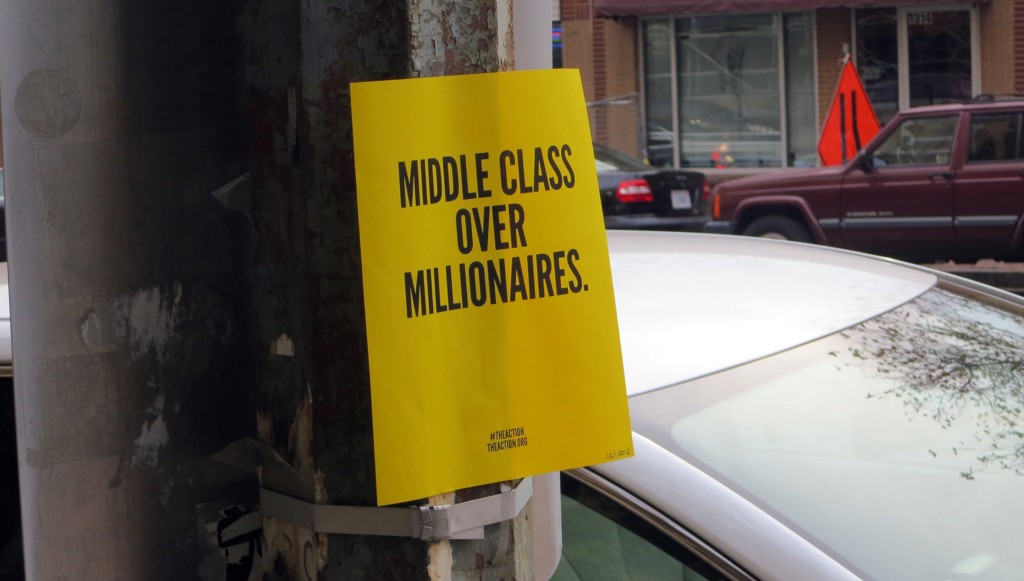Why Is the Middle Class?

Everyone seems to agree that the middle class, the most hallowed constituency in America, is shrinking. The New York Times has the data to prove it. But our golden age of data journalism abhors ambiguity; in order to show us the data, while the Times wrestles ever so gently with the amorphous notions of who, exactly is middle class — households making between thirty-five thousand and a hundred thousand dollars, it turns out — it avoids the ontological issue, or to put it in the preferred language of our times, “Why are sources of wanting to be middle class?”
The Times almost stumbles upon an answer by relating both the tale of John D’Amanda, who “earned about $30,000 a year running a window-washing service in Oakland, Calif” — below its thirty-five-thousand-dollar cut-off, but was apparently middle class enough to recount his slide into a minimum-wage job at McDonald’s — and by wryly noting that “many Americans in households making more than $100,000 consider themselves middle class, particularly those living in expensive regions like the Northeast and Pacific Coast, they have substantially more money than most people.”
“Middle class” is the primary signifier of class normalcy in America, which is why a household of four barely surviving on thirty-five thousand dollars a year can be lumped in with a household of one living lavishly off of a hundred thousand dollars a year. And they both want to be lumped together, because they want to be normal. This is why “the middle class” as a concept is so slippery: It performs wholly opposing functions, both aspiration and deprecation, depending on where on the spectrum one resides. (It’s also why the “middle class” seems to fit so seamessly in the center of fully oppositional rhetoric from both the Democratic and Republican parties.)
A better definition of the middle class — in case we want one? idk, the Times certainly does — might rely on context rather than strict dollar amounts:
“I would consider middle class to be people who can live comfortably on what they earn, can pay their bills, can set aside something to save for retirement and for kids in college and can have vacations and entertainment,” said Christine L. Owens, executive director of the National Employment Law Project, a left-leaning research and advocacy group.
So, how much does it take to be middle class in San Francisco these days?
Photo by Daniel Lobo
